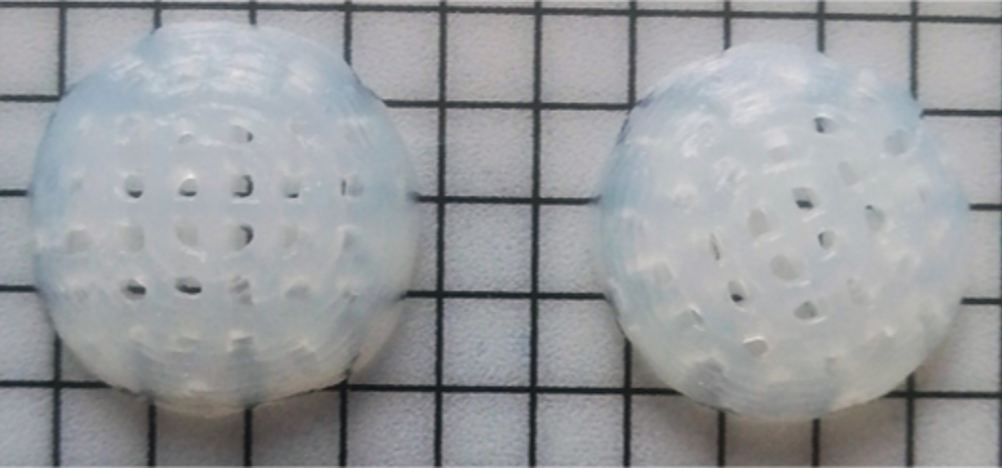The implants are programmed to change size to better fit within the breast cavity, resulting in personalisation to an individual’s body. The implants also have the ability to release chemotherapy drugs, protecting patients from the return of the cancer cells in the area. The research is detailed in Science Direct.
In a statement, Dr Niamh Buckley, Reader from the School of Pharmacy and responsible for the in vitro evaluation of these novel implants, said: “Chemotherapy plays a crucial role in the treatment of breast cancer, but it is associated with harsh side effects. The use of technology such as this, which allows a concentrated delivery of the drug just to where it is needed, can help make treatment more effective and kinder.”

The study was conducted by a team from the School of Pharmacy led by Professor Dimitrios Lamprou, Chair of Biofabrication and Advanced Manufacturing and in collaboration with Professor Luca Casettari from the University of Urbino Carlo Bo in Italy.
MORE FROM MEDICAL & HEALTHCARE
4D printing is the manufacturing of dynamic 3D printed objects that can change their morphology and/or characteristics. These changes are predictable and programmable, and are enabled by one or more external stimuli, such as the variation in the pH, temperature, humidity, light, or the presence of a magnetic field.
Common transformations are related to shape-shifting abilities, such as folding, bending, twisting, expansion, and shrinkage, while property changes include the colour, the stiffness, and the swelling ratio. This is achieved by using stimuli-responsive materials, also called “smart materials”.
The research team manufactured implants via a 4D bioprinter which contains doxorubicin that enables the implants to change size to better fit within the breast cavity. Due to the small size of these new breast implants they are also more affordable and easier to manufacture, meaning they can be prepared in hospitals for direct and personalised treatment, which reduces costs and provides better options for patients.
Professor Lamprou said: “This innovative idea started after discussions with doctors and patients, explaining us the challenges in operation, management and everyday life. By making, for first time, these 4D printed implants, the breast cavity after surgery can be covered with an implant that mimics the elasticity of the breast and provide better management of the breast cancer by releasing a chemotherapeutic drug that will “keep away” the return of the tumour.”
According to the World Health Organisation (WHO), over 2.3 million breast cancer cases occur each year and around 30 per cent of cases die from the disease. Around 1,400 women in Northern Ireland are diagnosed with breast cancer every year.











Guest blog: exploring opportunities for hydrogen combustion engines
"We wouldn't need to pillage the environment for the rare metals for batteries, magnets, or catalisers". Batteries don't use rare...